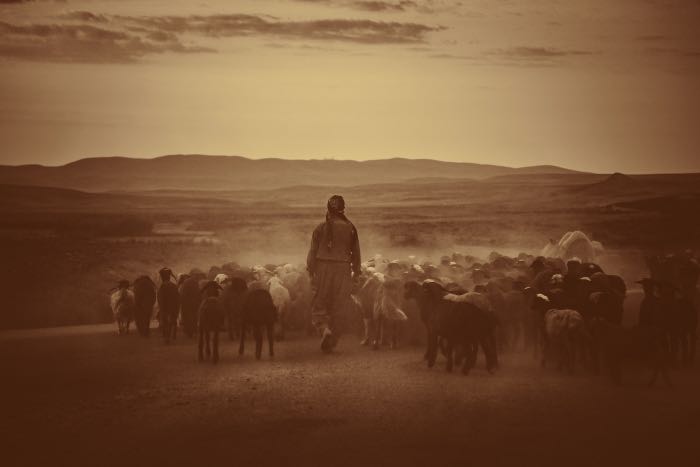Beginning with Jesus’s sympathy and turning to his sending out of his disciples, this week’s gospel may be a fascinating treatise on leadership. But such a depiction is, itself, a deeper suggestion than we may think.
The sympathy, which comes because he sees that people are helpless in their harassment, demonstrates his own willingness to act more than it does lead. His sympathy seems to represent not a claim to the mantle of leadership for them, but in acknowledging that helpless sensation.
What this moment brings to mind is a turtle on its back. Helpless, yes. When placed on its back because some jerk kid is messing with him. That’s demoralizing.
What that turtle doesn’t need is a guru to teach him how to flip himself over. Turtles can’t do that. Most of what we expect of leaders is to draw the best out of us and to the work we are called to do.
These people are harassed and helpless. The absence of the shepherd isn’t the cause of the harassment. They need help.
Jesus makes some shepherds.
At least that’s what it seems like.
Shepherds who are to go out and help the harassed and helpless.
What do you think we should make of this then?
Two ways I think we should NOT take this are:
- As an analogy for criticizing religious leaders today or
- As a call for better leadership skills.
In other words, this neither a passage to trot out when you’re pissed at your pastor (”I feel like a sheep without a shepherd!”) or as a conviction that we need better leaders. That’s really not going on here.
What we’re likely to miss:
As I name in the reflection this week, I often miss the word “harassed” in the telling. Which seems like an important word we might easily skip over.
Jesus doesn’t see people who feel helpless. He sees people who are oppressed and made helpless. There is a huge difference. And as much as we might want to extend this metaphorically, fine, sure, but see how people dealing with oppression feel when you walk in and say, “white men have no power anymore.”
This word, harassed, helps ground my own response for when we get to the sympathy. Because it is people in poverty or servitude and when he sees that they have no guide or protector, he feels sympathetic.
The apostles are protectors.
The act of healing is an act of restoring. It is an act of transformation which removes harassment and helplessness and restores place in the community.
This is the wonderfully rich role of the shepherd. They are guide and protector for the sheep. Not just one who barks orders and makes the sheep do things. It is also beyond relationship and care. They serve the whole of the flock and ensure that all are cared for.
This is the image that the evangelist uses right before describing Jesus turning disciples into apostles and sending them out. This isn’t a coincidence.
